As the landscape of junior hockey has grown and changed through the decades, so too have the Saskatoon Blades.
For 10 seasons, the Blades competed in the Western Canada Hockey League (1968-78), the predecessor to the modern-day Western Hockey League. In that time, the Blades transformed from a young franchise struggling to forge an identity into a consistent winner full of iconic players who led the team on regular deep playoff runs.
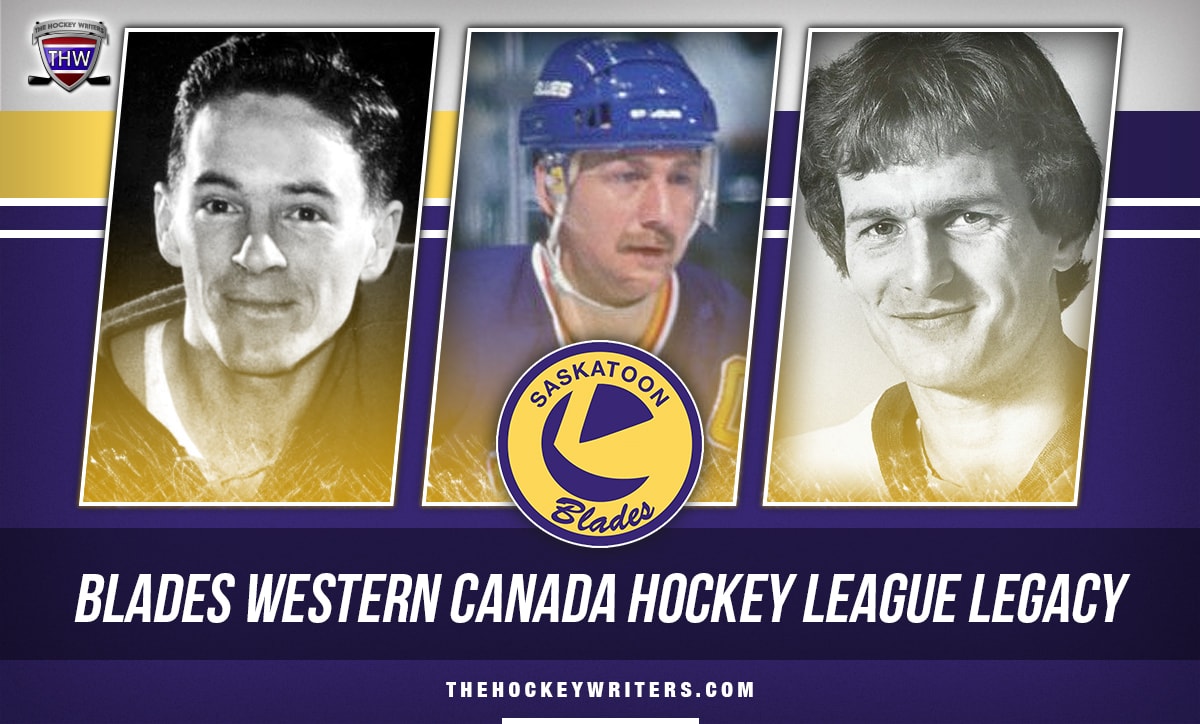
It was these teams that set the Blades on a positive course and began to establish the legacy of one of hockey’s oldest junior franchises.
Origins of the Blades
At the time of the Blades’ inception as a franchise in 1964, original owner Jim Piggott intended for the team to serve as a feeder to the Los Angeles Blades of the now-defunct professional Western Hockey League, which he also owned.
“The team was more of a farm team than an independent franchise. We quite often lost players to other leagues,” said Gord Granberg, who was a member of the inaugural Blades squad.
Winger Bobby Schmautz scored 45 goals with Saskatoon in the Saskatchewan Junior Hockey League in 1964-65 and went on to become the first Blades’ alumni to reach the NHL, skating in 764 games with six teams, registering 271 goals and 557 points. He also scored 28 goals in 84 Stanley Cup playoff games, mainly with the Boston Bruins between 1973 and 1979.
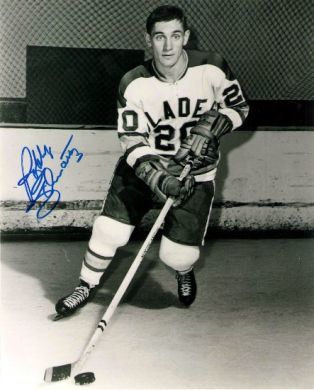
The Blades became a dedicated junior club in 1966-67 when they competed in the seven-team Canadian Major Junior Hockey League for a season along with the original Edmonton Oil Kings and the Regina Pats.
The following season saw the league expand to 11 teams and rebrand as the Western Canada Junior Hockey League for one campaign before the Western Canada Hockey League began with eight teams, including Saskatoon, in 1968-69.
New League and Fresh Leadership
The Blades won just 24 games in the first season of the WCHL and regressed to 18 victories the following season. In a span of three seasons, they had declined from 57 points in the CMJHL in 1966-67 to just 37 points in 1969-70, prompting a change in leadership.
Jack McLeod
Former New York Rangers’ winger and Canadian National Team head coach Jack McLeod took over as the Blades’ new head coach in time for the 1970-71 season.
McLeod had enjoyed a professional career that lasted 17 seasons, including 106 games with the Rangers between 1949 and 1955 and four seasons as a member of the Saskatoon Quakers in the professional Western Hockey League in the 1950s.
Under McLeod’s direction, the Blades began to put an emphasis on playing a skillful game, and it paid immediate dividends. The team’s win total jumped to 29 in his first season behind the bench and increased to 37 in 1971-72, which was the Blades’ first season with a record better than .500 in their last five seasons dating back to their pre-WCHL days.
Helping Saskatoon to their first winning season in the WCHL was Lawrence Sacharuk, who became the first and still the only defenceman in Canadian junior hockey to score 50 goals in a campaign.
The Blades’ would go on a run of three WCHL Finals appearances in four seasons beginning in 1972-73, when they posted a then-franchise record 46 wins. That stretch from 1972 to 1976 saw several of the most iconic Blades play for McLeod, including Hockey Hall of Famer Bernie Federko and accomplished NHL players like Bob Bourne, Brent Ashton, Blair Chapman, Pat Price and Marc Habschied.
Saskatoon’s head coach for the entire 1970s, McLeod recorded 291 victories in nine seasons (1970-79) which remained the Blades’ record until Lorne Molleken surpassed his mark during the 2007-08 season, and went on to finish with 539 wins in his Blades career.
In 1976, McLeod was part of a group including Nathan Brodsky and Joe Reich who purchased the Blades. McLeod and Reich sold their shares of the club to Brodsky in 1980. The franchise then remained under the ownership of the Brodsky family until Mike Priestner purchased the club in 2013.
In 2006, McLeod was recognized with the WHL’s Governors Award.
1972-73
After two seasons of building, just about everything came together for the Blades in McLeod’s third season at the helm. Laden with serious star power up and down the lineup, the team went 46-11-11, setting franchise records for wins and points (103) that would stand until 1982-83.
Leading the forward group was Bourne, a mainstay in the New York Islanders’ dynasty of the 1980s. On defence, the Blades boasted a pair of future NHL stalwarts in Dave Lewis and Pat Price.
Bob Bourne
Bourne, who won four consecutive Stanley Cups (1980 to 1983) as part of the Islanders dynasty, led the Blades with 93 points and was second with his junior career-high 40 goals. After scoring 97 goals and 224 points in 192 games over three seasons with the Blades ending in 1973-74, Bourne played 964 NHL games over 14 seasons.
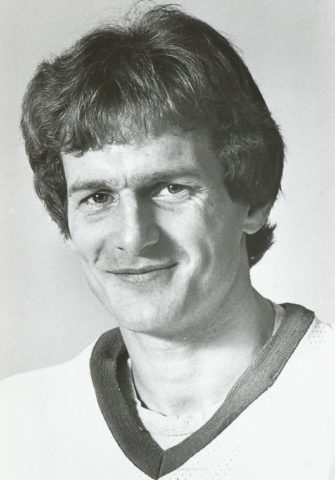
In all, he spent 12 seasons with the Islanders before finishing with the Kings, and also played in a total of 139 playoff games with 40 goals and 96 points in postseason play.
The Blades retired Bourne’s No. 12 in 2005, and in 2017, he was inducted into the Saskatchewan Hockey Hall of Fame.
Dave Lewis
Lewis contributed 10 goals and 45 points from the blue line in his second and final season in Saskatoon before beginning a storied NHL career. In 1973, Lewis became a third-round NHL draft pick of the New York Islanders, and a third-round pick of the then-Alberta Oilers in the WHA Draft.
He signed with the Islanders and played seven seasons on Long Island before a trade to the Kings late in 1979-80. He spent four seasons with the Kings and finished his 15-season NHL career with two campaigns with the Detroit Red Wings. In 1,008 career games, Lewis totaled 36 goals and 223 points along with 21 points in 91 career playoff games.
The product of Kindersley, SK retired as a player on Nov. 7, 1987, in Detroit and became an assistant coach with the Red Wings. He remained a Red Wings assistant for seven seasons before his title was changed to associate coach in 1996-97, working alongside legendary head coach Scotty Bowman, who was in his fourth season in Detroit.
Detroit won the Stanley Cup in each of Lewis’ first two seasons under the coaching team of Bowman, Lewis, and Barry Smith. The trio remained behind the Red Wings’ bench through the 2001-02 season when Bowman retired after winning Detroit’s third Stanley Cup in six years, and the ninth in his Hall of Fame career.
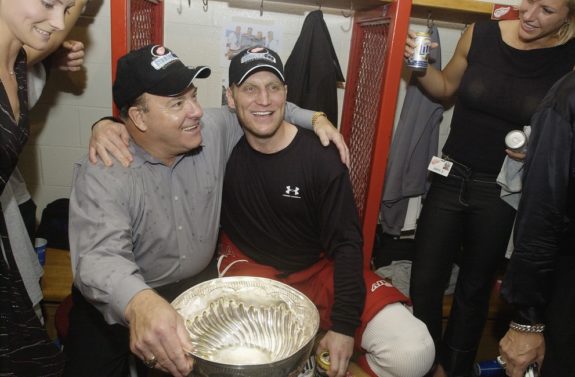
Lewis was promoted to head coach the following season, and though the Red Wings won 48 games in two straight seasons under his direction, they won just a single playoff series, leading to Lewis’ removal from head coaching duties. He remained with the organization, working as a professional scout in 2005-06.
Lewis was hired as head coach by the Boston Bruins for the 2006-07 campaign, but that job lasted just one season after the Bruins finished out of the playoffs.
After four seasons out of the league, Lewis returned to the bench as an assistant coach with the Carolina Hurricanes for the final three campaigns of his 19-season NHL coaching career concluding in 2013-14.
Altogether, Lewis spent an amazing 34 seasons in the NHL as a player or coach.
Scratched by the Tigers
The Blades’ great 1972-73 season culminated in Saskatoon reaching their first WCHL Final, where they would fall just short to future Hockey Hall of Famer Lanny McDonald and the Medicine Hat Tigers.
The future captain of the 1989 Stanley Cup Champion Calgary Flames paced the Tigers with 62 goals that season.
Eight members of McDonald’s supporting cast that season would go on to play in the NHL, headlined by Tom Lysiak, whose 154 points led the Tigers.
Lysiak would go on to play in 919 NHL games in 13 seasons with the Atlanta Flames and Chicago Blackhawks.
1974-75
After a first-round exit in 1973-74, Saskatoon made it back to the WCHL Final in 1975, powered by a new array of stars. Their 38 wins and 86 points represented the second-best regular-season, trailing only the 1972-73 campaign.
Future St. Louis Blues’ icon Bernie Federko was showing signs of his future greatness, scoring 39 goals with a team-leading 107 points in his second season with the Blades.
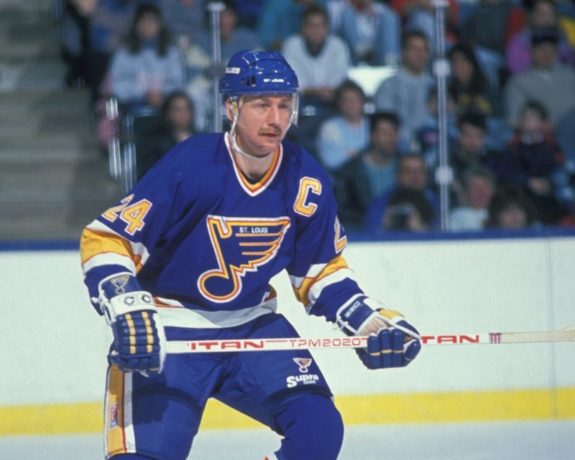
Winger Danny Arndt led the way with 44 goals in his third and final season with the Blades before embarking on an eight-season professional career that saw him play a single game for the Edmonton Oilers in the WHA in 1976-77.
Winger Blair Chapman, who went on to skate in 402 NHL games with the Pittsburgh Penguins and St. Louis Blues, lit the lamp 41 times in his second season in Saskatoon.
Five other skaters on that edition of the Blades went on to see time in the NHL, headlined by forward Ralph Klassen, who was playing in his fifth and final season with Saskatoon before going on to play in 497 NHL games across four teams.
The postseason started well for the Blades, as they lost just two games over the first two rounds on their way to clinching a spot in another WCHL Final, this time against the New Westminster Bruins. The series went the distance with the Bruins edging out the Blades to move on to the Memorial Cup.
Future Vancouver Canucks legend Stan Smyl made his debut in the playoffs for the Bruins, and would play the following three seasons in New Westminster before making his NHL debut with the Canucks in 1978-79.
1975-76
The Blades reloaded and came back even stronger the following season, eager to get back to the league final for a third time and finally break through. By this point, the regular season was not a concern for the playoff-savvy club, as they posted 43 wins and 96 points, good for second place overall behind New Westminster.
Much of the Blades’ high-octane offense was driven again by Federko, who had a season for the ages.
Bernie Federko
In his third and final season in Saskatoon, before embarking on his legendary NHL career with the Blues, Federko potted 72 goals with 187 points, which still stands as the Blades’ franchise record, and likely will remain so for a long time to come.
For his junior career, Federko scored 133 goals with 344 points in just 206 games and was named one of the WHL’s top-50 players of all time.
The gifted center debuted in the NHL with the Blues the following season and never looked back, spending the next 13 seasons in St. Louis and turning in one of the great careers ever for a player in a Blues’ uniform.
Federko played in 927 games for St. Louis, more than any other Blues’ player, scoring 352 goals and holds the franchise records for assists (721) and points (1,073). In 91 career Stanley Cup playoff games with the Blues, he netted 35 goals and 101 points.
THW’s Stephen Ground etched Federko onto his St. Louis Blues Mount Rushmore.
Federko played his final season with the Detroit Red Wings in 1989-90, bringing his career games played to an even 1,000, with a grand total of 369 goals and 1,130 career points.
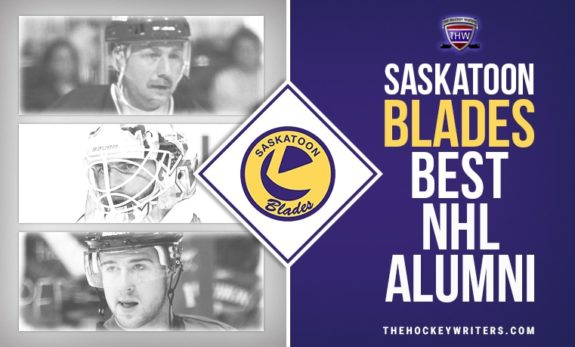
In 2002, Federko became the only former Blade to be inducted into the Hockey Hall of Fame, which cemented his place atop the list of the Blades’ greatest NHL alumni.
Third Time Is Not the Charm
Another future Blue, Blair Chapman, also took a large step forward in his third and final season as a Blade in 1975-76, scoring 71 goals with 157 points, which remains second all-time in the Blades’ record books, trailing only Federko’s marks set in the same season.
Unfortunately, the postseason would yet again follow a similar script, with the Blades reaching their third WCHL Final, falling again to New Westminster, this time in six games.
The Bruins went on to reach their second consecutive Memorial Cup Final on the back of their potent offence that outgunned the Blades. Smyl finished seventh on the team with his 32 goals on a club that boasted four 50-goal scorers.
Window Closes
The Blades’ third shot at a WCHL title would prove to be their last.
The team began to regress in 1976-77, finishing with 30 wins and 72 points and losing in the first round of the playoffs. They then entered a full-scale rebuild, winning a combined total of 46 games between the 1977-78 and 1978-79 seasons, which were McLeod’s last as Blades head coach.
1978-79 was the first campaign under the league’s modern-day Western Hockey League moniker. Fans in Saskatoon would have to wait until the 1981-82 season for another finish better than .500, and although the Blades have gone on to enjoy several more memorable seasons in the nearly four decades since, they are still searching for a championship.
Creating a Legacy
As time ticks on, the Blades’ WCHL era will fade deeper into the memory banks of longtime fans in Saskatoon, kept alive in their stories, the evidence stashed in the club’s archives.
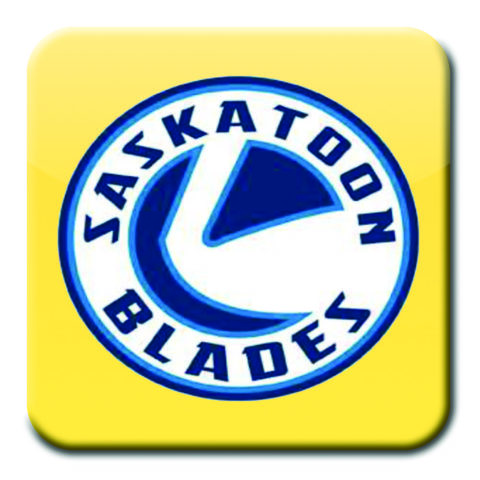
What the Blades accomplished in the WCHL remains significant, and it is important to remember the teams of the 1970s who set the bar and started to build a tradition for the Blades teams that came after them. These first teams are integral pieces of the legacy that today’s team represents each time they pull on the signature blue and gold ‘Pacman’ sweater.